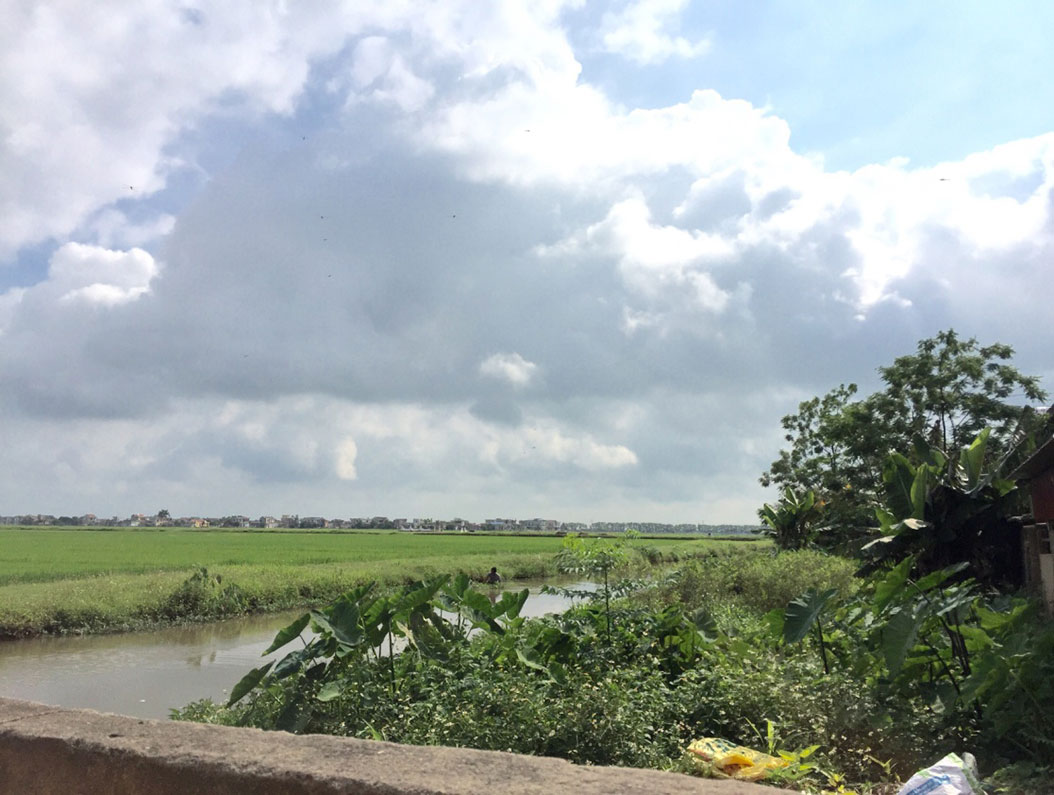Schoolchildren in three districts in Vietnam are routinely exposed to toxic pesticides, according to a study released today by PAN Asia Pacific (PANAP), Research Centre For Gender, Family and Environment In Development (CGFED) and Sustainable Rural Development (SRD).
A combination of two studies conducted by PANAP partners, the study entitled Schoolchildren’s Exposure to Pesticides in Vietnam shows that Vietnamese schoolchildren exhibit symptoms of pesticide poisoning whenever they are exposed to pesticides inside homes and schools, which are located less than one kilometer from agricultural fields where pesticides are sprayed.
A total of 140 junior high school pupils participated in the study conducted by CGFED in Hai Hau and Nghia Hung Districts in Nam Dinh province, North Vietnam. Meanwhile, 80 school students and 20 teachers participated in the study conducted by SRD and the Phu Luong District Agricultural Extension Station in Phu Luong District, Thai Nguyen province, Northeast Vietnam. All schools surveyed were located within agricultural villages.
The study reported that children exhibit poisoning symptoms after being exposed to pesticides sprayed from nearby fields. Furthermore, the study found that children purchase and spray pesticides for their parents; and that they mix pesticides with their bare hands. Children also play in the agricultural fields where their parents work and pesticides are sprayed.
Here are some of the key findings:
In Hai Hau and Nghia Hung Districts
- An overwhelming majority or 98.6% of students reported that they were exposed to the pesticides in their homes and schools. They were exposed to pesticides through various ways, such as playing in the fields after pesticides were sprayed (66%), purchasing and selling pesticides when told by parents (48.6%), and washing pesticide spraying tanks or equipment (33%).
- Students reported experiencing fatigue (91.4%), dizziness (57.9%), vomiting or nausea (80.7%), headache (76.4%), and difficulty in breathing (57.1%) after being exposed to pesticides.
- Only 24.4% of students sought medical attention after experiencing symptoms.
In Phu Luong District
- One-thirds or 32.5% of schoolchildren re- entered newly sprayed fields to assist their parents in various farming tasks, such as picking tea leaves and harvesting vegetables. There were 11.2% who reported mixing pesticides with their bare hands, while 12.5% helped their parents purchase pesticides.
- An overwhelming majority or 97.5 % of children reported that pesticides came into contact with their eyes and skin.
- One-thirds of students or 36.2% vomited after being exposed to pesticides, which they describe as smelling “terrible.”
According to the study, girls are also more vulnerable to pesticides exposure due to involvement in activities based on traditional gender roles, such as washing pesticides spraying tanks or equipment.

Schools surveyed in the study are either adjacent or located within one kilometer of agricultural fields where toxic pesticides are sprayed. (Photo: CGFED)In all districts surveyed by the study, there is no efficient system of pre-warning by farmers and school authorities prior to a scheduled pesticide spraying. School authorities are also unable to close schools when pesticides are being sprayed during school hours, because they would need to apply for special permission from the Education Department, aside from it being impractical to constantly close schools every time pesticides are sprayed.
Teachers reported that the Highly Hazardous Pesticides such as glyphosate, paraquat, chlorpyrifos, thiamethoxam, cypermethrin, hexaconazole and fipronil were commonly used in fields surrounding the schools. In 2017, the Vietnam government officially banned the use of paraquat, however, reports of its continued use persist. Meanwhile, in early 2019, several months after the field surveys for the study were conducted, the Vietnam government officially banned the use of chlorpyrifos and fipronil, which are among PANAP’s list of Terrible Twenty pesticides that are especially toxic to children.
“This study is a reminder that the current chemical-intensive system of agricultural production impacts children the most. The international community must do more to protect children by working for a global phase-out and ban of Highly Hazardous Pesticides (HHPs),” said Deeppa Ravindran, PANAP campaign coordinator.
“While it is laudable that the Vietnam government takes steps to ban certain HHPs, a lot more needs to be done to ensure than rural children’s right to health and healthy environment—which are enshrined in the UN Convention on the Rights of the Child—is respected at all times,” Ravindran added.
PANAP recommendations include the enactment of a one kilometer or more pesticide-free buffer zone around schools as an initial risk reduction measure; assisting farmers in replacing pesticides with more agroecological methods; and encouraging the government to phase-out and ban HHPs, especially the Terrible Twenty pesticides that are especially toxic to children.
Reference: Deeppa Ravindran, PANAP campaign coordinator, deeppa.ravindran@panap.net.
PAN Asia Pacific (PANAP) is one of five regional centres of Pesticide Action Network, a global network dedicated to the elimination of harm upon humans and the environment by pesticide use. It is based in Penang, Malaysia.


![[Video release] BAGSAKAN: For Food and Rights Amid COVID-19](https://panap.net/wp-content/uploads/2020/12/BAGSAKAN-75x75.jpg)





Discussion about this post